Low uptake of horticulture support
There was a much lower uptake of the COVID-19 support scheme for the ornamental horticulture sector than expected, a senior DAERA official has said.
“The original estimate of what might be claimed was based on our estimate of 40 or 50 businesses. In the end, only eight actually came forward with valid claims,” Norman Fulton told MLAs last week.
It means that the original £1.6m budget for the horticulture scheme will have a significant underspend.
However, Fulton said that the funding was not ring-fenced, so unspent money can be used for COVID-19 support in other sectors, including pigs, hatching eggs and, potentially, organic milk.
Proposals on a revised TB eradication programme for NI will be published this spring, Agriculture Minister Edwin Poots has confirmed.
Speaking to MLAs last week, Minister Poots said that the document which details the cost of the new plan is in the final stages of completion.
“It is my intention to publicly consult on a TB strategy in the spring of this year, so we will be moving to that stage quite quickly. It has taken a while to get here,” he acknowledged.
The new TB strategy is expected to contain proposals for controlling the TB reservoir in wildlife, but it could also include plans which are less palatable for farmers, such as changes to reactor compensation.
“I would hope that we will have a strategy that will have buy-in from the agri sector. I trust it will have buy-in from the environmental sector, because we will have a healthier wildlife population when we have completed this,” Minister Poots said.
Plans proceed for NI vet school
The long running campaign to open a veterinary school in NI has taken a step forward, with DAERA launching an exercise to consider potential options.
“An analysis of options to deliver a more assured supply of vets for NI into the long term, including consideration of the various models for third level veterinary education has now been commissioned,” confirmed Agriculture Minister Edwin Poots.
The exercise involves representatives from both Ulster University and Queen’s University Belfast. It is expected to be completed by the end of 2021.
3,000 responses
to Red Tractor
Over 3,000 pieces of feedback were received in a consultation about changes to the Red Tractor quality assurance scheme.
The information will be used by Red Tractor’s technical advisory committees, which are made up of farmers and representatives from across the food chain, to reach a consensus on new standards.
The original proposals included the requirement to upload all records of antibiotic usage onto an online portal as part of the both the dairy scheme and the beef and lamb scheme.
Several proposals were fiercely criticised by farmers, including the need for all pig farmers to complete online training on how to handle livestock correctly.
Red Tractor has said that the final version of the new standards will be published in the summer, ahead of implementation in November 2021.
NI bred grass
tops PPI list
The perennial ryegrass, Gracehill, bred in NI by AFBI has topped the Pasture Profit Index (PPI) listing of late heading recommended grasses for commercial use in the Republic of Ireland.
The PPI ranks grass varieties on economic traits, assigning a monetary value to each variety based on seasonal yield, sward quality, silage production and persistency.
Gracehill has a value of €222/ha/year. A total of 30% of varieties on the 2021-22 list are from AFBI.
Low uptake of horticulture support
There was a much lower uptake of the COVID-19 support scheme for the ornamental horticulture sector than expected, a senior DAERA official has said.
“The original estimate of what might be claimed was based on our estimate of 40 or 50 businesses. In the end, only eight actually came forward with valid claims,” Norman Fulton told MLAs last week.
It means that the original £1.6m budget for the horticulture scheme will have a significant underspend.
However, Fulton said that the funding was not ring-fenced, so unspent money can be used for COVID-19 support in other sectors, including pigs, hatching eggs and, potentially, organic milk.
Proposals on a revised TB eradication programme for NI will be published this spring, Agriculture Minister Edwin Poots has confirmed.
Speaking to MLAs last week, Minister Poots said that the document which details the cost of the new plan is in the final stages of completion.
“It is my intention to publicly consult on a TB strategy in the spring of this year, so we will be moving to that stage quite quickly. It has taken a while to get here,” he acknowledged.
The new TB strategy is expected to contain proposals for controlling the TB reservoir in wildlife, but it could also include plans which are less palatable for farmers, such as changes to reactor compensation.
“I would hope that we will have a strategy that will have buy-in from the agri sector. I trust it will have buy-in from the environmental sector, because we will have a healthier wildlife population when we have completed this,” Minister Poots said.
Plans proceed for NI vet school
The long running campaign to open a veterinary school in NI has taken a step forward, with DAERA launching an exercise to consider potential options.
“An analysis of options to deliver a more assured supply of vets for NI into the long term, including consideration of the various models for third level veterinary education has now been commissioned,” confirmed Agriculture Minister Edwin Poots.
The exercise involves representatives from both Ulster University and Queen’s University Belfast. It is expected to be completed by the end of 2021.
3,000 responses
to Red Tractor
Over 3,000 pieces of feedback were received in a consultation about changes to the Red Tractor quality assurance scheme.
The information will be used by Red Tractor’s technical advisory committees, which are made up of farmers and representatives from across the food chain, to reach a consensus on new standards.
The original proposals included the requirement to upload all records of antibiotic usage onto an online portal as part of the both the dairy scheme and the beef and lamb scheme.
Several proposals were fiercely criticised by farmers, including the need for all pig farmers to complete online training on how to handle livestock correctly.
Red Tractor has said that the final version of the new standards will be published in the summer, ahead of implementation in November 2021.
NI bred grass
tops PPI list
The perennial ryegrass, Gracehill, bred in NI by AFBI has topped the Pasture Profit Index (PPI) listing of late heading recommended grasses for commercial use in the Republic of Ireland.
The PPI ranks grass varieties on economic traits, assigning a monetary value to each variety based on seasonal yield, sward quality, silage production and persistency.
Gracehill has a value of €222/ha/year. A total of 30% of varieties on the 2021-22 list are from AFBI.




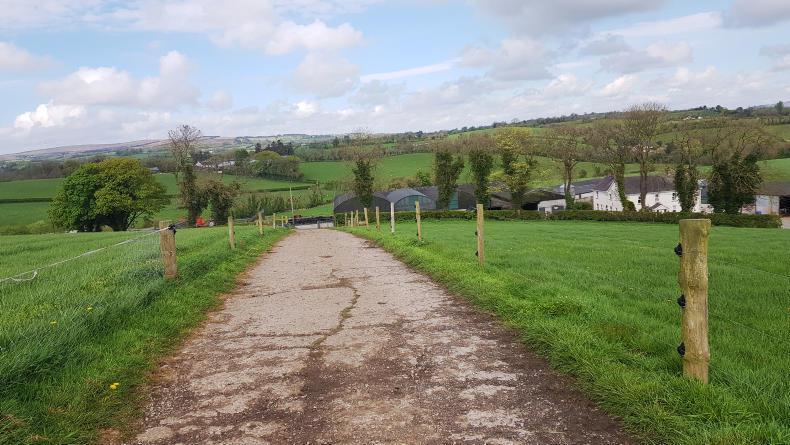
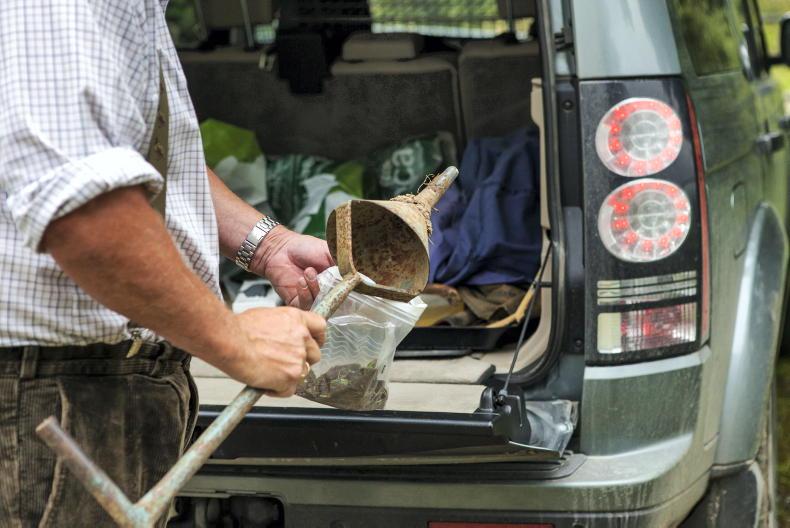
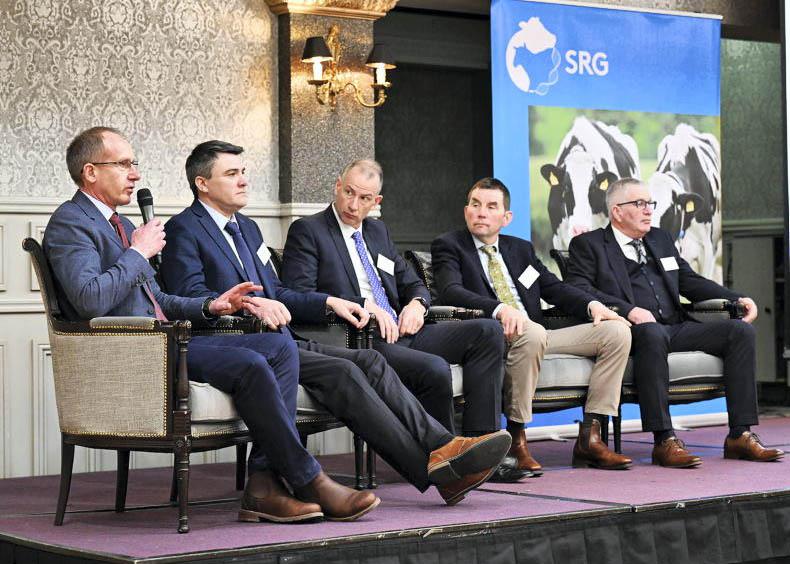
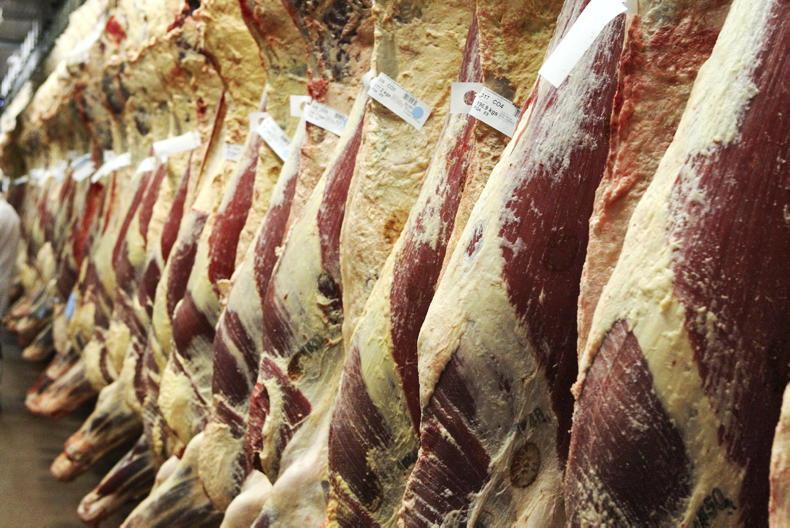
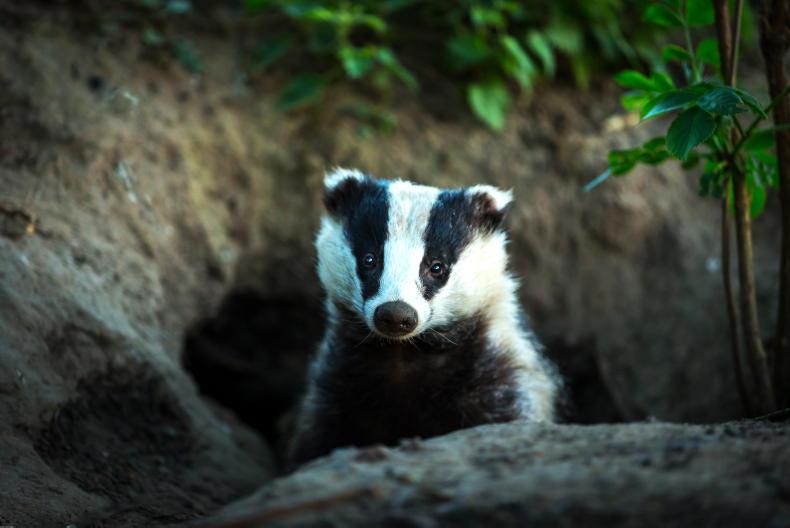
SHARING OPTIONS